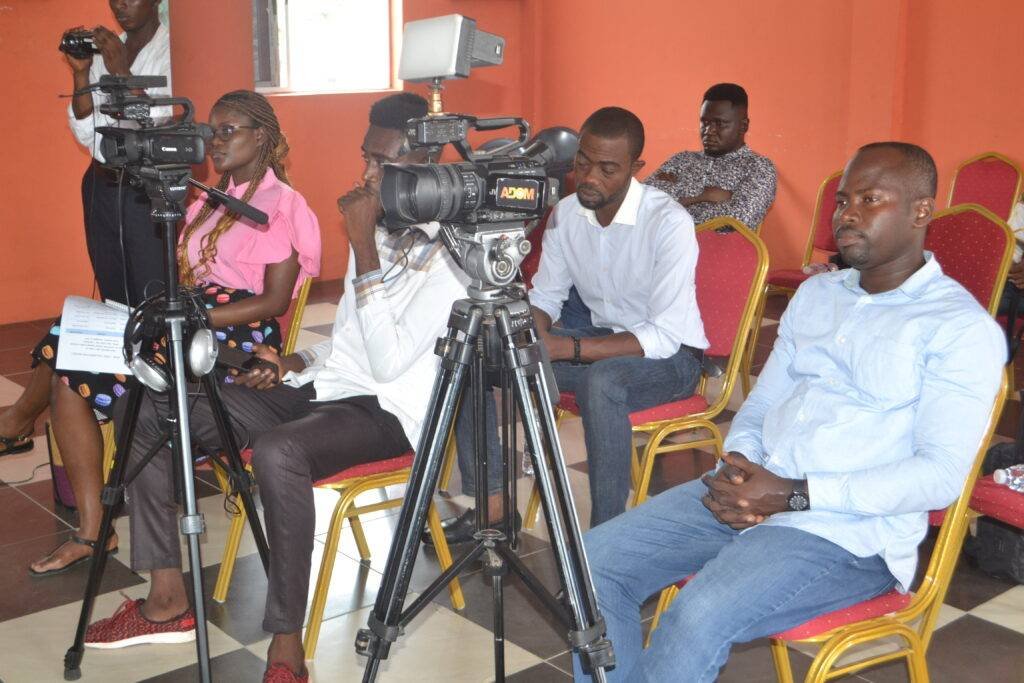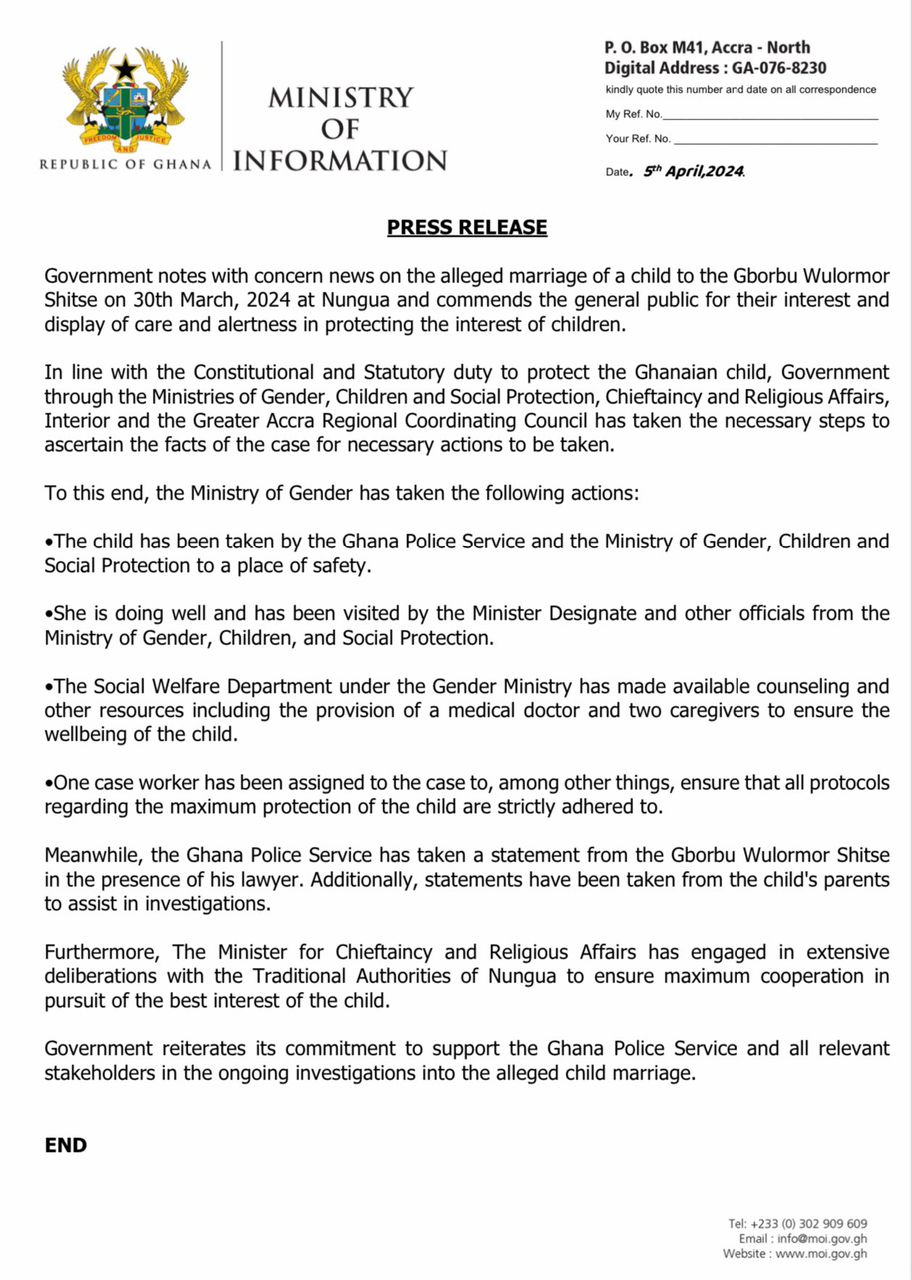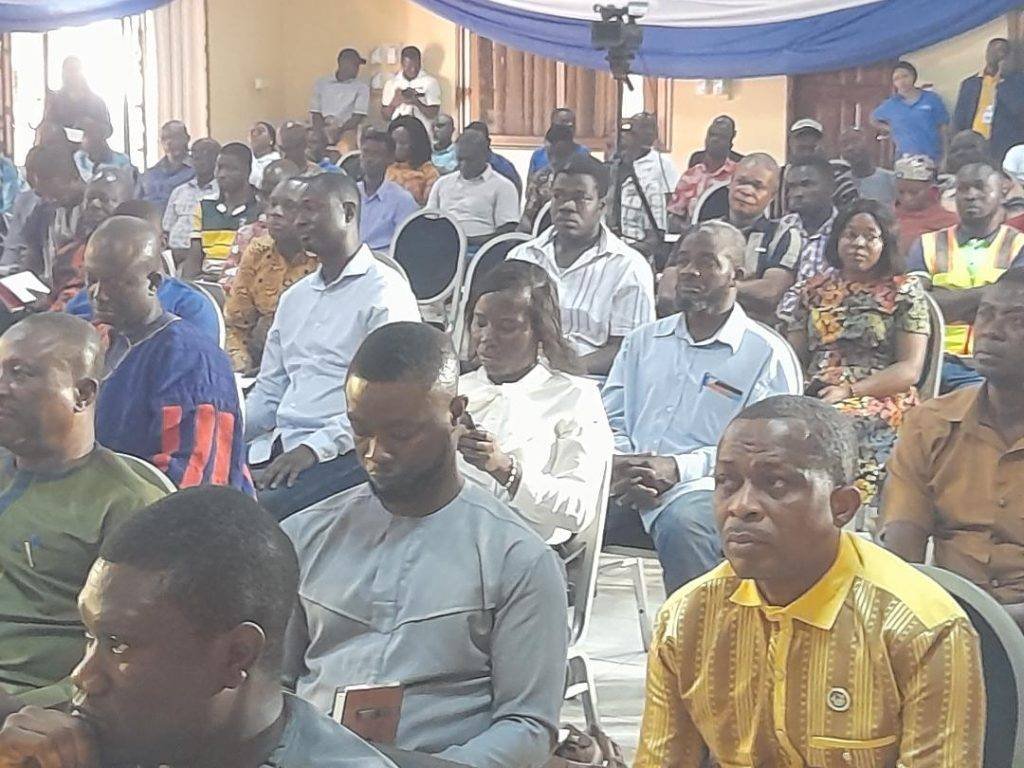
Kalbeon — A traditional ruler in the Upper East Region has proposed to the government to enact a law to empower chiefs to punish people who perpetrate gender-based violence in their communities.
Naba Apasipanga Ayine II, Chief of Kalbeo in the Bolgatanga municipality claimed that most of the criminal cases that were usually reported to the Ghana Police Service did not always lead to the resolution of the matter, but rather worsen the problem.
This, he noted, often resulted in people losing confidence in public institutions such as the Police Service, and feel reluctant to report cases anytime they were abused.
The chief was speaking at a community sensitisation programme organised by the Upper East Regional Directorate of the Department of Gender as part of the 16 days of activism against gender-based violence at the Kalbeo community on Monday.
The annual event is usually marked between November and December on the theme, "Ending Gender-based Violence: The Role of the Community."
The chief claimed that unlike the public institutions like the Domestic Violence and Victim Support Unit (DOVVSU) of the Ghana Police Service where the rich often get away with wrong acts, traditional authorities especially the chieftaincy institution was highly respected and cases would be properly handled when they are empowered to prosecute perpetuators of violence in the community.
The acting Upper East Regional Director of the Department of Gender, James Twene, explained that the programme was meant to educate members of the community on the causes of gender-based violence, its effects on socio-economic development and to seek for support from the members of the community to curb the phenomenon.
Mr Twene said violence emanated from the communities and there was the need for members at the community level to be sensitised on the causes of violence in their homes and how they could help end it to promote harmonious living.
According to the acting regional director, the country witnessed 316, 236 and 311 cases of rape in 2015, 2016 and 2017 respectively, while defilement cases in the respective three years were 1198, 722 and 793.Within these same years 5494, 4190 and 5019 cases of assault were recorded.
He took community members through some of the practices that constituted violence, the types of violence especially those which were related to gender and the institutions responsible for handling such cases.
The Assistant Director of Administration at the Upper East Regional Coordinating Council, Ms Yvonne Wonchua, said women were mostly adversely affected with the phenomenon and entreated them to always report such cases to the appropriate authorities for redress.
She mentioned the DOVVSU, Ghana Legal Aid and the Commission on Human Rights and Administrative Justice (CHRAJ) as some of the institutions responsible for investigating the abuses of such cases, and called on the representatives of all the eight clans in the community who attended the programme to report gender-based violence cases to the institution.
Read Full Story



















Facebook
Twitter
Pinterest
Instagram
Google+
YouTube
LinkedIn
RSS